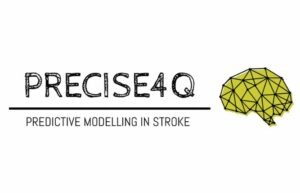In a significant milestone for medical science and predictive analytics, the Precise4Q Predictive Modelling in Stroke Project has come to a successful conclusion. The ambitious project, funded by EU Horizon 2020, aimed to revolutionize stroke prediction, treatment and personalized medicine through the application of advanced data analytics and artificial intelligence. The project’s conclusion marks a significant step forward in the field of precision medicine, providing healthcare professionals with powerful tools to mitigate the devastating effects of strokes.
Under the leadership of researchers and medical experts from various partners organizations, the Precise4Q consortium set out to develop a highly accurate and personalized predictive model for stroke. The project leveraged large-scale data analysis, including clinical, genetic, and lifestyle information, to identify risk factors and patterns associated with strokes.
The conclusion of the Precise4Q has yielded remarkable outcomes that hold immense promise for patients and healthcare providers alike. The developed predictive model demonstrates a high degree of accuracy in identifying individuals at risk of suffering a stroke. By integrating various data sources and employing sophisticated algorithms, the model offers healthcare professionals valuable insights into an individual’s stroke risk profile. This empowers them to implement preventive measures, personalized interventions, and targeted therapies, significantly reducing the occurrence and severity of strokes.
The research findings of the Precise4Q project have the potential to reshape stroke management and care protocols globally. By enabling early detection and intervention, the predictive model opens new possibilities for improving patient outcomes, reducing disability rates, and optimizing resource allocation in healthcare systems. Furthermore, the project’s success underscores the transformative role of data analytics and artificial intelligence in healthcare, highlighting their potential to unlock crucial insights and guide decision-making in complex medical conditions.
As the Precise4Q project reaches its conclusion, we hope that the medical community, and healthcare providers are able translate these research outcomes into tangible benefits for patients. The integration of the predictive model into clinical practice holds the potential to revolutionize stroke prevention and management strategies, ushering in a new era of personalized and proactive healthcare.
